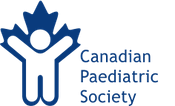When it comes to genetic testing, children’s best interests should be the priority
February 16, 2022
OTTAWA – Genetic testing has come a long way since the first karyotype – or chromosomal snapshot – was created in the 1950s. As the practice becomes more common in paediatrics, recent developments in the field may affect genetic testing in children.
That’s why the Canadian Paediatric Society wants parents and physicians to ensure the best interests of children are the top priority when it comes to genetic testing. A new policy document from the CPS Bioethics Committee released today provides guidance to healthcare providers and families considering genetic testing and screening in children.
Due to advances over the last number of decades, the ability to detect more genetic anomalies earlier on is increasing all the time.
According to the American College of Medical Genetics (ACMG) there are now 73 genes that are deemed “actionable”. Actionable genes relate to conditions that can be managed or treated, if identified early enough.
These include complex genes related to cancers, cardiac diseases, Wilson’s disease, maturity-onset diabetes of the young (MODY) and other conditions.
“You have better resolution of your genetic material,” says Dr. Aideen Moore, a neonatologist and co-author of the CPS position statement.
“Now you are looking at minute changes. You can see smaller parts.”
In the past, genetic testing was hypothesis-driven, meaning doctors made a working diagnosis and tested for that condition only. But with testing for a wider array of genes now feasible, it’s possible to expose a condition that a physician does not suspect.
Genetic testing can either confirm a diagnosis in a child with symptoms, or predict illness in a healthy child with a family history of a particular condition. The CPS recommends that if a condition won’t emerge until adulthood, testing be deferred until a child is old enough to make the decision for themselves.
Because children cannot give informed consent, genetic testing requires permission from parents or a substitute decision-maker. Both the child’s right not to know test results and the right to know when they are old enough to understand and act must be protected. When parents request genetic testing for a healthy child, health care providers must weigh the benefits against potential harms. Healthcare providers should not feel obligated to facilitate testing when they do not believe it is in the child’s best interests.
The psychological impacts of genetic testing can include emotions like stress and guilt, which may affect family dynamics. Genetic information is considered uniquely private because stigma and discrimination have been—and are – real social concerns for those with genetic conditions.
When genetic testing is being considered, the CPS recommends that health care providers and caregivers ensure children’s privacy and well-being is prioritized by:
- Fully informing parents of any psychological and social risks.
Involving genetic counsellors or a medical geneticist in this important discussion is strongly recommended. - Deferring predictive testing for conditions that don’t present until adulthood until the child is capable of deciding to test. Testing children for carrier status to inform reproductive decision-making later in life is discouraged.
- Limiting testing for infants and children considered for adoption to those comparable to screens and diagnostic tests offered to children in the general population, except in cases of timely medical benefit.
- Informing parents and youth capable of involvement about the limitations of research results, which can vary widely. Recipients of genetic information should be cautioned against acting on research results for clinical decision-making.
The CPS does not recommend the use of direct-to-consumer genetic testing for children.
Guidance for clinicians can be found here.
-30-
For more information or to schedule an interview, please contact:
About the Canadian Paediatric Society
The Canadian Paediatric Society is a national advocacy association that promotes the health needs of children and youth. Founded in 1922, the CPS represents more than 3,300 paediatricians, paediatric subspecialists and other child health professionals across Canada.
Last updated: Feb 16, 2022
